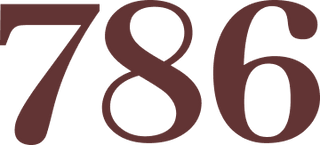
Stop attacking Dina Torkia
Amidst the myriad of celebratory new year posts on social media, came something that showed a different side to the light hearted and hopeful stories that everyone else was sharing. Prominent Muslim blogger, entrepreneur, author, and designer, Dina Torkia uploaded a video titled, "The bad, the worst and the ugly," to her YouTube channel on the morning of January 1st, 2019. What came as a much anticipated response to the recent uproar of vitriol following her decision to no longer wear the hijab, became something that was far more gruesome than anyone had expected. In what is almost a 50 minute long video, a somber faced Dina sits in front of the camera and for the entirety of the video, reads out a series of comments that were left on her social media outlets over the past few weeks. The comments come as a shock to those who are watching. They are aggressive, abhorrent, derogatory, sexist, vile, violent, threatening, inflamed, misogynistic, disrespectful (to say the least), and the list goes on. It's difficult to watch more than a few minutes, yet Dina sits through almost an hour and remains stoic. The pain and hurt however, linger heavy in the air.
In November, Dina posted a photo on her Instagram that showed her without her infamous hijab/turban on. The internet was set ablaze and was asking questions about her faith, her relationship with the hijab, everything. Some users began posting inflammatory remarks and called her a disappointment, others even brought her twin sister Tasneem into the argument -- Tasneem had decided to remove her headscarf a few weeks prior. This single post in November was enough to catalyze a dangerous domino effect. In the weeks and months to follow, every one of Dina Torkia's posts on any of her social media outlets would be ridiculed, criticized, and littered with people verbally abusing and threatening her and her entire family. It got to the point that other 'prominent' YouTube figures, like the problematic and misogynistic Ali Dawah, as well as YouTuber Musa Adnan -- who is just as problematic, began inciting their followers to boycott Dina and her brand, going so far as to encourage others to leave defaming comments under her posts.
The problem, amongst many, in this entire situation is that it took a 50 minute long video of a woman reading some of the most disgusting and vitriolic comments ever seen, for people to think, "perhaps this is unjust in some way." That is what it took. The fact that a woman had to post almost an hour long video of people abusing her on the internet says a lot about the judgmental, egotistical, and disrespectful spiritual illness that is plaguing our communities today.
Amidst this chaos, people seem to have forgotten the basic etiquette of being a decent human being. This is nothing more than a case of online harassment and bullying. Many people label this kind of aggression as simply "giving naseeha" or "advice". It's disheartening to see such a large majority of the Muslim community use this term as a guise for their disrespectful behaviour. Interestingly, it is the same people who spew such hatred at a woman they do not personally know, that call Dina out for "straying away from the path". The irony is sweltering. Absolutely sweltering. Why does a woman's decision to live life a certain way become an open invitation for public ridicule and defamation? The hijab, like any act of worship, is a conscious personal decision that an individual must make on their own accord. Just as one decides to pray, fast, give alms, etc. Worship, is a choice. Man was created to think for himself, and man will be judged by the Most Just based on his choices. The relationship between a woman and her hijab, or lack thereof, is simply between her, her hijab, and her Creator. There is never a third party involved. Yet people take it upon themselves to nudge their judgements and expectations between what is a very individually unique journey for each woman. When a woman who adheres to the hijab, one day decides to take the hijab off, why does it shake so many people's cores? Why does it impact so many people in such a prolific way when they should not ever have become so invested in such a dynamic to begin with? Why do people take things that have nothing to do with them, ever so personally? And most of all, why do said people become aggressive upon doing so? Muslims as a community have a score of obstacles they are facing today. Islamophobia is rampant, micro-aggressions in the social sphere are ever so common, and the world seems to be an image of us vs. them, the latter being minorities that include Muslims and PoC. Despite the attacks from the outside however, Muslims seem to be struggling within too. Both at the individual and communal level. Islam is perfect. Muslims are not. That much is clear. The rise in domestic violence, the lack of mental health support, and the intergenerational act of shaming women, are just some of the cracks in the system we seem to never acknowledge as often as we should. We as Muslims are being engulfed and influenced by the hyper-social, pseudo connected information age of today. Our minds, bodies, and hearts are being deprived whilst our abhorrent egos are being fed till they are famished. Judgemental tendencies do not sprout over night, nor can they be eradicated in a day. We must accept the issue before we can work to resolve it. Have we forgotten the greatest of role models of our time and how he spoke, acted, behaved, and led? The Prophet Muhammad was the epitome of perfection. Of modesty, kindness, sincerity, respectfulness. His interactions with even those who were plotting his death, were that of respect and dignity. Never, even to the most violent of his enemies, did he resort to foul language, threats, or anything of the like.
Abu Hurairah (May Allah be pleased with him) reported: The Prophet (ﷺ) said, "He who believes in Allah and the Last Day must either speak good or remain silent." Abu Musa Al-Ash'ari (May Allah be pleased with him) reported: I asked the Messenger of Allah (ﷺ): "Who is the most excellent among the Muslims?" He said, "One from whose tongue and hands the other Muslims are secure." Abu Hurairah (May Allah be pleased with him) reported: I heard the Prophet (ﷺ) saying, "A person utters a word thoughtlessly (i.e., without thinking about its being good or not) and, as a result of this, he will fall down into the fire of Hell deeper than the distance between the east and the west." Ibn 'Umar (May Allah be pleased with them) reported: The Messenger of Allah (ﷺ) said, "Do not indulge in excessive talk except when remembering Allah. Excessive talking without the Remembrance of Allah hardens the heart; and those who are the farthest from Allah are those whose hearts are hard." It was narrated from Abu Hurayrah (may Allah be pleased with him) that the Messenger of Allah (peace and blessings of Allah be upon him) said: “Do you know what gheebah (backbiting) is?” They said, “Allah and His Messenger know best.” He said, “Saying something about your brother that he dislikes.” It was said, “What if what I say about my brother is true?” He said, “If what you say is true then you have backbitten about him, and if it is not true, then you have slandered him.” Allah says in the Quran, "O you who believe! Avoid much suspicion, in deeds some suspicions are sins. And spy not neither backbite one another. Would one of you like to eat the flesh of his dead brother? You would hate it (so hate backbiting). And fear God, verily, God is the one who accepts repentance, Most Merciful. (49: 12)"
What will you say then, when you're asked about your words and how they impacted someone else? Is it worth it? Just because you disagree with their choices? And for the women who are attacking Dina, ask yourself what part of you, deep down, has been hurt so much, that your insecurity is being triggered. There are so many women who are "hurt" that Dina decided to no longer wear the headscarf. Women who say that she was the one who inspired them to wear the hijab in the first place and who has let them down. Ask yourself why you have attached another human to your own personal hijab journey to the extent that you will drag them in the dirt, for following their own path.
Always ask yourself, "where do my intentions lie as I post this disrespectful comment?". Whether or not someone is "following Islam" the way you see fit, it never gives you the right to publicly humiliate someone in the manner that Dina has been abused. The abuse is ongoing despite the fact that many people have commented and said how upset and disappointed they are after seeing the latest video.
Abdullah ibn Mas’ud reported: The Messenger of Allah, peace and blessings be upon him, said:


